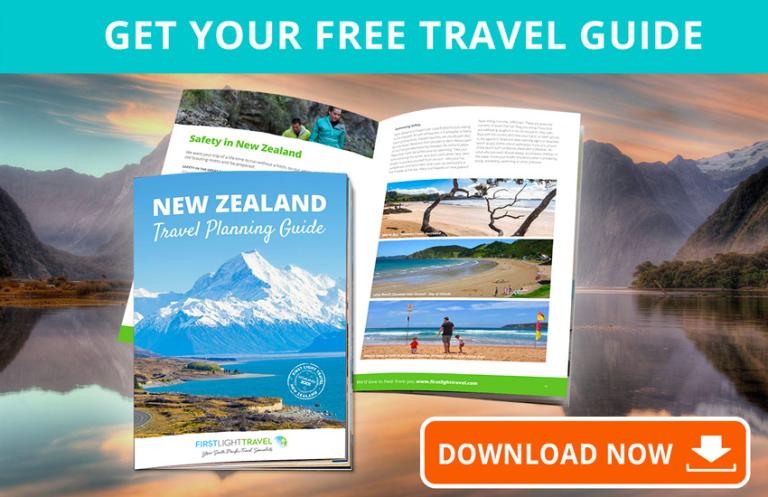Some Advice on Packing
General Guideline
Clothing should be lightweight, hard-wearing and easily washed. Almost everyone brings too many clothes, so try to travel as light as possible. If you are travelling in high summer months (January to March) we recommend that you take loose fitting clothing, preferably made of cotton, as this will help you to keep cool. Bear in mind in New Zealand you can experience 4 seasons in 1 day!
Packing not Stuffing
When packing for your holiday, don’t pack your bags too full. Not only do over-packed bags place undue stress on locking mechanisms, they are also difficult to re-pack throughout your holiday, not to mention the fact that you’ll have nowhere to put any souvenirs that you buy along the way.
Cross-packing
When travelling with a companion we recommend “cross-packing”, i.e. pack 2 outfits of your clothing in your companion’s luggage and vice-versa, in case one bag is delayed or lost.
Roll, don't fold
Tried-and-tested by our team, rolling saves more space than folding and prevents creasing. Anything seriously fragile should go in a garment bag and laid flat on top. If you can, leave it on the hanger (preferably a slim, plastic one) - then you can just hang it up as soon as you arrive.
Keeping Warm
If you are visiting our alpine regions, on the water or here over winter - the best way to beat the cold is by wearing two or three thin layers of clothing, rather than one thick layer. Air trapped between layers becomes warmed by the body and instant insulation from the effects of cold is created. Keeping dry also plays an important role in beating back the effects of cold. Finally, it is important to have the proper covering for head, hands and feet. As a general rule, wool, silk and synthetic fabrics are recommended as they trap air better than cotton. These items are available in a wide range of clothing articles in soft, stretchy, water- and windresistant fabrics. Jerseys, camisoles and underwear help "wick" moisture away from your body and can act as your first layer. For your second layer, you might want a sweater. A third layer, if necessary, may be a cardigan-type jacket made of waterproof synthetic or a lightweight down vest.
The Sun
Just 15 minutes in the New Zealand summer sun can cook you. Temperatures can be low but the ultra-violet rays are vicious due to the hole in the ozone layer. Wear a hat, sunglasses and a high SPF sunscreen.
Footwear
It is important to bring footwear that is suitable and also comfortable. If you are planning any hiking we recommend you wear sturdy walking shoes or hiking boots If you decide to take hiking boots, it is vital that you wear them in before you travel (one suggested method is to put them on, submerge them in water and then take a brisk 5 mile walk at least twice). You should also bring spare laces. Sport sandals, boating shoes or beach footwear—may be useful in some locations.
Stuff shoes
Use every inch of space and prevent shoes from getting damaged by stuffing them with socks and underwear. Then place each pair of shoes inside a dust bag This also forces you to be brutal - how many pairs of shoes do you actually need?
Stock up on basic meds
When your body relaxes, it often lets down its defences. Don't let a cold ruin your holiday - pack a cold remedy for the flight and stock up on tissues and painkillers at the airport. Please read our blog Bringing Medication into New Zealand
New Zealand Dress Code
New Zealand is typically an informal place, so bring plenty of comfortable, casual clothes. Most bars and restaurants do have a dress code, but, again, this is commonly just smart casual. Men are generally not expected to wear suits and ties, except in a few of the top formal bars and restaurants in major cities.
If you read a sign saying: "No thongs" don't panic - it's another word for flip-flops, jandals, pita-patas etc, depending where you are from.
Suggested Packing List
General Clothing
- 1 pair jeans
- 2 pair light-weight trousers
- 2 pairs shorts (or a skirt)
- 3-4 Shirts (think layering for colder days; quick-dry clothes are best)
- 2 button up front long sleeve shirt
- 1 sleep shirt & sleep shorts (or whatever you sleep in)
- 1 light sweat shirt or long-sleeve t-shirt
- 1 swimming suit
- underwear and sleepwear
- 4-5 pairs socks both thin and thick
- 1 pair walking boots or comfortable walking shoes
- 1 pair sport sandals (like Teva's)
- 1 Polar Tec or similar fleece Jacket (preferably water resistant/windproof jacket)
- warm rain jacket or lined windbreaker with hood
- 1 pair "hiking" boots or good walking shoes
- 1 or 2 changes of smart casual clothing for restaurant dining
Outdoor Clothing
- 1 Polar Tec or similar fleece Jacket (preferably water resistant/windproof jacket)
- non-cotton base layers (top and bottom); choose fabrics such as polypropylene, Capilene or Thermax
- rain jacket and pants (preferably water and wind proof or resistant)
- 1 pair "hiking" boots or good walking shoes
- heavier socks
- sandals (preferably waterproof)
- collapsible walking staff
- scarf or bandanna
- 1-3 long pants (help to ward off sand flies in remote/mountainous areas of the South Island)
Documentation
- passport
- travel Insurance
- travel documents – flight tickets/vouchers and Itinerary
- dive certification cards
- dive log book
- drivers license
Other Items
- motion sickness tablets (if you require them)
- Insect repellent (with Deet)
- sunscreen lotion
- sun glasses
- brimmed sunhat
- medications and copies of prescriptions
- sunscreen and lip ointment
- toiletries
- current converter and outlet adapter
- daypack
- travel alarm clock or watch with alarm
Documents to bring with you...
Scuba Diving
All persons wishing to scuba dive must take their certification cards with them as well as their dive log book as these will be examined. You will be required by each dive centre to complete a medical questionnaire. If we are in anyway unsure of your fitness, you may be required to undergo a medical examination at your expense to prove you are fit to dive. This may result in considerable extra cost. No refunds will be given if you are refused medical clearance to dive. You are strongly advised to undergo a full medical examination before booking your holiday. We also require you to sign a Standard Safe Diving Statement of Understanding. Also bring any of your equipment that you do not feel comfortable hiring, i.e. a regulator, BCD, mask or fins, etc. However, there is a full range of equipment available for hire at a nominal fee.
Driving licence
If you plan to drive a vehicle while in New Zealand you should bring your licence with you. You can legally drive in New Zealand if you have a current driver's licence from your home country(if not in English this needs to be shown in combination with either an official translation or an International Driving Permit (IDP). The law here requires all drivers carry their licence or permit when driving. You will only be able to drive the same types of vehicles you are licensed to drive in your home country. Drivers with a non-English language licence must carry an accurate English translation of their licence or an International Driving Permit while driving.
Travel Documents & Vouchers
When you book a tour you will be issued with a Confirmation Itinerary. Please ensure that all the services which you have booked and paid for are shown on your travel documents and that all names have been spelled correctly. If you have booked additional services like extra nights' accommodation, transfers or excursions, please make sure that these are shown and that you have been issued with a voucher for these services. (Vouchers are generally sent out one month prior to departure). Don’t forget to bring your valid passport and if required a visa for your journey.
Make a Copy
It is highly recommended that you make a note of your passport details (passport number, visa number and place and date of issue of both), in the old days we would say take a photocopy but now you can just take a photo from your phone and store it in the cloud. This makes live so much easier if you do happen to lose your passport etc. If you lose your passport you must report it at once to the local police and the nearest embassy or consulate of your country.
and finally, a word to the brave…
Before you leave for your holiday, Take everything out of your bag/case lay it all out, the clothes and the ‘things’ you plan to take. Take a long look then only put half back.
Take only the ‘Bare Necessities’ :) - as it’s so much more comfortable to travel light. Have you ever been on a trip only to find you took something with you that you never even used? If you can answer ‘yes’ to that question, then it’s likely you could be taking a lot less with you. Take clothing that can serve multiple purposes and remember you can always get items laundered as you travel should you need. Remember New Zealand is a modern country and if you really need that item you left behind, you will be able to purchase one locally.
More articles to help you plan your trip to New Zealand
Getting to New Zealand
New Zealand Passport and Visa Requirements
Smooth as possible on arrival to New Zealand
Travel Insurance for New Zealand
Doubtful Sound or Milford Sound?
Which New Zealand Glacier to Visit?
Driving in New Zealand
Safety in New Zealand's Great Outdoors
What is the Best Time to Visit New Zealand?
New Zealand Accommodation Guide
New Zealand's Need to Know Facts
What do things cost in New Zealand
Since 2001 we’ve been helping visitors plan their dream New Zealand holiday. We aim to make visiting our beautiful land effortless. Let our expert holiday planners put together an itinerary for you, no obligation FREE of charge, or get some friendly advice on what small group tour would suit - Just follow the link and answer a few brief questions.



